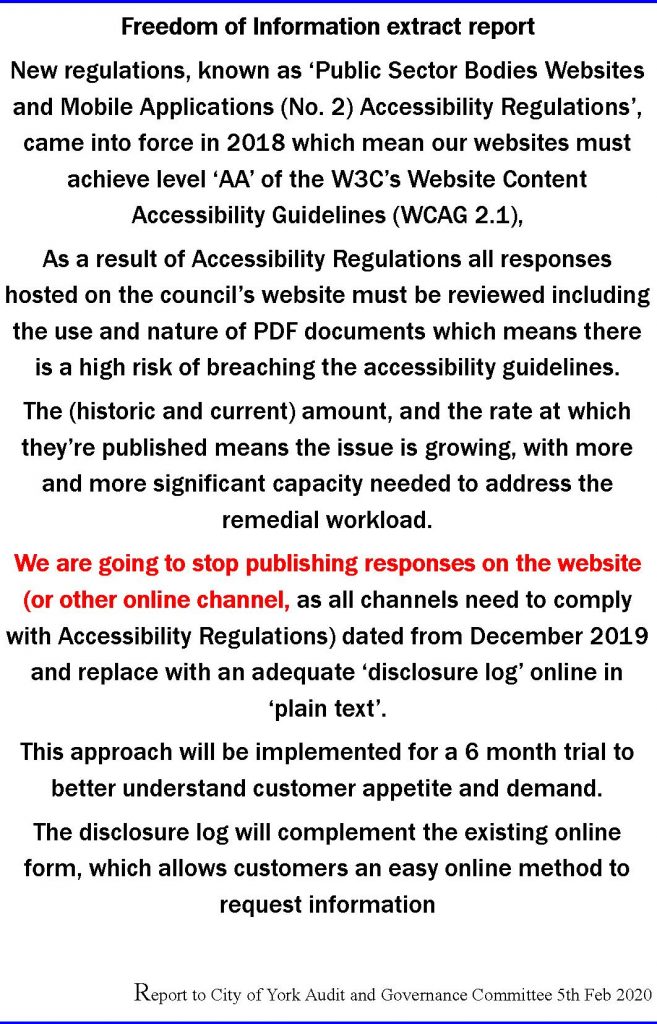
What’s on in west York


It seems that the York Council will stop publishing responses to Freedom of information requests on its web site.

In 2009 the York Council became one of the first in the country to allow on line public scrutiny of the responses to information requests.
We have been critical in the past about the speed of the Councils information responses.
This came to a head in 2014 when the Information Commissioner became involved. The then Labour controlled Council introduced a new web page which offered links to all FOI responses. The web page was immediately criticised as responses were not listed in chronological order and were grouped under, seemingly, random headings. There was no search facility.
Improvements were promised but never materialised.
Other independent web sites grew up which aimed to make getting and viewing information easier. The best known is probably https://www.whatdotheyknow.com/
Now a report to a meeting taking place on Wednesday suggests that some officials want to make access to information even more difficult.
They intend to replace the current listings with what they term a “disclosure log”. No example of what such a log might look like are provided.
The report quotes an EU decision taken in 2016. The equivalent UK legislation became effective on 20th September 2019. It was aimed at improving accessibility for people with disabilities.
This is being interpreted by officials as preventing the publication of information on the Council web site in PDF* or Word format.
*NB. There are many papers published on the Councils web site in PDF format including, ironically, the report being considered at Wednesday’s meeting!
Of concern, will be the implication that the FOI archive of decisions (going back 6 years) may no longer be easily accessible. This provides vital information for researchers. It also helps to avoid duplicate requests.
That, and loss of transparency on future responses, would be a major step backwards.
The report is for the “information” of the Council’s Audit and Governance” committee. They rightly should take a view on the issue but any decisions on obstructing public access to information must properly be made by the Councils Executive, following proper consultation
There is an provision in the legislation which allows an exemption for (historic) information translations where this would be an unreasonable burden on taxpayers.
The legislation does not cover third party web sites so information on https://www.whatdotheyknow.com/ should be unaffected.
Proper provision for disabled access can, and should, be made using, for example, a mirror site.
But this must not be at the expense of the amount of information released into the public domain.